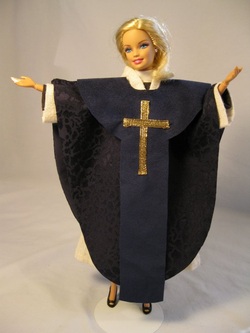|
|
 It beats inside our hearts, a rhythm like the rush of a rolling river. The thrum and hum of words whirl and turn inside, attach themselves to images that are long held and known like the crevices of our own hand; the river is true and deep and wide. As children we sat at the feet of storytellers and saints and the ancient narratives caught our hearts, seeds planted and watered were nurtured to grow. We stood with Miriam in the reeds watching over the baby in the basket beside the shimmering cerulean Nile. We sat beneath the palm trees feet soaked in sun and sand and we heard the cries of our children, settled land disputes and listened for God’s call on the wind holding hands with Deborah, prophet and judge of Yahweh’s unfaithful bride. We knew a spiritual kindred, an eternal bond with Mary, this woman child who birthed forth the Word, we knew her, felt her heart, sensed her pain somewhere hidden and true. It is from this river that every preacher must draw, must reach down deep into that well of what she knows, into that current that is at the heart of her becoming to cradle the stories that have been her song to find her own voice, to know her own vessel unto the proclamation of good news. The pilgrimage of voice is a paramount process for every preacher. The labor of discovering one’s own unique timbre lives somewhere beyond the work of exegesis and the historical critical method, far out past manuscript variations, textual and syntactical issues, at the end of Hebrew translation and reception history. On the edge of study and before the birth of proclamation lies the sacred task of giving voice to biblical truth, to emanate words from one’s own story for the good of the community of faith assembled. Those who would prepare then, for the vocation of ministry, for the office of preacher, must do more than learn to mine the Christian texts and holy books. Those whose lives will be given as heralds of kerygma will also need to mine their own lives. Those who are called to the daunting task of preaching must not only be well versed in Biblical languages, Church history, and cultural relevancy, but must also find some confidence in their own unique voice so that the texts and the process must first incarnate the preacher before she might inform and challenge and shape the community. The discovery of voice, then, is shaped around the art of story so that the sermon is crafted from Spirit revelation in God's story as well as our own. Stay tuned for more... (An excerpt from my essay in "A Faithful Witness: Essays Honoring David Sebastian's Heart and Mind for the Church,"to order contact Anderson University School of Theology)
0 Comments
Leave a Reply. |
Subscribe Today for Free GiftBLOG
Archives
June 2019
Categories
All
|

 RSS Feed
RSS Feed